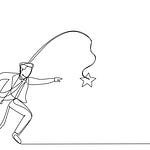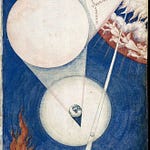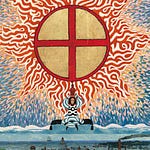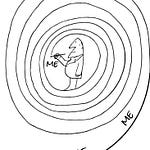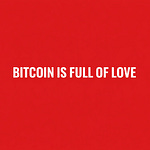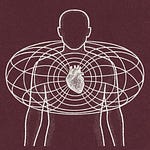This article is going to sit between the rational; so we’re going to be speaking about definitions, and the most intuitive part of myself that’s putting all these things together because this is what I’ve been observing from the place where I am right now.
A lot of these movements or cultural heritage were given to me via visuals. I lived in New York for so many years, I lived in Europe, so I was able to grasp a lot of it just intuitively. I’ve always been attracted to abstraction, attracted to very clean lines. It’s just the way part of my aesthetics work.
But that doesn’t mean I cannot appreciate Gothic or Baroque. It’s just the way I find harmony. It’s more with geometry, so that’s why my work is more abstract in a way. But within the abstraction, I always put emotion in it. I put colors, but I embed with textures and with whimsical elements of what could be the absurd.
I like the absurd in my work. I think they’re not expected to be there, they make a contrast, and then they can create and trigger an emotion in the moment that the art can be viewed, or the piece can be read, or it can be encountered and experienced. So I’m very aware of that.
But now what I’m doing with this article is speaking from a very personal perspective. Because what I feel is happening right now with me is that I’ve entered a different alignment in my life, where I’m just going to go deep and try to deconstruct what I’m doing—not in a postmodern way—but more as a synthesis, by integrating all the pieces without having to deconstruct them and isolate them.
Because I think that’s the problem I have with postmodernism. It segregates things so much that it’s very difficult to find the connection between them.
Tempo, Territory, and the Property of My Own Body
What is private property? What does it mean to have autonomy and ownership over your own body? These questions became real in 2021, standing in a castle in Umbria, Italy, surrounded by poets, musicians, and visual artists from around the world.
I had been invited to an artist residency funded by the National Endowment for the Arts. A gift from the same government now busy dismantling those funds—but I’m not here to argue that part. I took the opportunity, I made the most of it.
But before I arrived, I made sure of one thing: that my body would not be subject to forced medical procedures. That was my line. They assured me it would be respected. But halfway through the residency, in the middle of the summer, the Italian government changed the rules.
They brought in the infamous Green Pass, and suddenly, my body wasn’t entirely my property anymore—not if I wanted to stay.
One of the directors called me into her office, her hands on her heart, her head tilted toward one side of her shoulders, her little dog on her lap. She asked me to “do something for them.” But she didn’t say I—she said we.
I remember asking, “Who’s we? You and the dog?” Because I knew where this was going.
What happened next wasn’t just about vaccines or politics. It was about territory, about property, about how easily the ownership of the body: the most basic form of private property, can be eroded by collective pressure wrapped in polite words.
A day after I declined to be tested every two days at my expense because everyone else would feel “safer,” the Italian director joked that I was making a big thing out of nothing—>as they could vaccinate me during my sleep.
Guys, I am not dramatic, but then I felt my body freeze. And I decided to cut my stay in Italy short; alas, the country had submitted to a collective blob of very efficient and obedient NPCs.
Since then, I have enrolled in educating myself on common law and been able to stand for my rights on many occasions. It is about language, y’all.
That moment was the beginning of me tracing how all these threads intersect—private property, modern culture, coercion, value—and how they land as challenges to confront..
Slavery
Slavery is such a dirty word. The first time you ever heard slavery, you were probably very young, and then you ask for something too much, and somebody just responds, what do you think I am, your slave? And then you ask your mom, your dad, what is a slave? And they probably say, oh, maybe the meaning of slave comes from Latin, sclavus, originally meaning Slav, as many Slavic people were captured and enslaved during wars in Eastern Europe.
But did we really know what it meant?
Slave is something that is defined as a person who is the legal property of another. I’m going to say that again: the legal property of another.
When it’s legal, it’s not lawful. This is a very big distinction. Somebody taking over somebody else’s private property, or the property of their body, so being a slave is actually an unlawful thing.
“Why do men fight for their servitude as stubbornly as though it were their salvation?” – a question posed by Deleuze and Guattari quoting Spinoza on how people demand their own submission.
But legal and lawful aren’t the same thing. Legal is what the system writes into its codes. It’s policy. It’s paperwork. Lawful—at its root—is aligned with natural law, with rights that exist before governments decide what’s permitted or prohibited. Legal can be manipulated; lawful is meant to be inherent.
Origins of Private Property — Especially the Body as Private Property
Private property begins with the body. It is your first territory, your first boundary. Before Locke, before the modern legal definitions, there was still the instinct to say: this is mine.
John Locke formalized that instinct in his Second Treatise of Government (1689), defining private property as an extension of one’s body and labor:
“Every man has a property in his own person. This nobody has any right to but himself.”
But ownership of the body has been selectively applied, distorted, even erased, depending on who holds power. Before Locke, under feudal systems and monarchies, there wasn’t really a concept of the body as private property distinct from sovereign rule. You were subject to the king, the church, the patriarch, the tribe.
So my point—body as private property—is historically a modern concept, but it’s been co-opted, fractured, selectively applied ever since.
Modern
When you think about the word modern, you probably think: modern times, the beginning of a departure from neoclassical ways. Stripping all the shapes into straight lines, circles, triangles.
I actually relate a lot to modernism, but not as a way of thinking—more as something that embodies simplicity and functionality.
The word itself comes from modernus, from modo, meaning just now, present manner. It implies recent times, the now, the up-to-date. It entered Middle English by way of Late Latin around the 15th century.
So it always implies newness and relativity—just new, just now.
Modernism vs Contemporary
I aligned to modernism because it emphasizes rationality, clarity, progress. But I never agreed with rejecting tradition, ornament, or myth. I think one should not reject or embrace—but synthesize.
There is an idealism for efficiency—but utopian ideals, they’re very naive.
Think Bauhaus, Le Corbusier, early functionalist architecture, abstract art, minimalism.
Contemporary simply means of this time, now. But in culture, it usually refers to postmodernity—what came after modernism.
Crits and BS
When I arrived in New York, postmodernism was flying high. Everybody was talking about semiotics, philology. Foucault, Derrida, Lyotard, Baudrillard, Deleuze—blah, blah, blah. Reading over a reading over a reading—it was exhausting.
I had a couple of ex-boyfriends who studied philology; sorry to say, they were just mentally masturbating over these principles. I would ask: why don’t we just go to the root of the thing? Instead of building new meanings on top of meanings, on top of meanings, when all you’re doing is avoiding reality.

“There is nothing outside the text.” — Jacques Derrida
That is postmodernism in a nutshell. You can never touch the ground.
I like tradition. I like to go back to basics. That’s why I love etymology.
When I moved to New York in 1994, I went to school specializing in photography—it was a requirement for my visa, not the school, but the studying. Yes, I am a legal alien in the United States. Yes, I am naturalized. And yes, I’m against illegal immigration—but that’s another conversation.
At that school, they wanted me to look at images pinned to the wall and say something about them. I asked: why? They said it was about observation, criticism, we’re having crits. I rolled my eyes so hard. These people were really masturbating intellectually.
At one point, I couldn’t avoid saying: I don’t want to talk about it.
Instead, I started asking questions with the images in front of me. Bullshitting a little, asking questions, seeing relationships and finding patterns…. And then I realized—I was tapping into my own intuitive mind.
It proved, with time, that if I have a question, or I stand in front of something, and I relate to it with curiosity, my intuition channels through me.
“Intuition is a method of feeling one’s way intellectually into the inner heart of a thing to locate what is unique and inexpressible in it.” — Henri Bergson
Why? Because both my Jupiter and my Mercury retrograde are conjunct, and there’s the Sun in between, and they’re in Taurus, third house. I need to ground ideas. I need to give light to them. That’s how I create meaning and curiosity IS the channel.
Jupiter represents the right side of the brain, the seeker of truth, not through abstract philosophy alone, but through experience, empirical observation, the lived testing of reality.
Mercury retrograde turns the left side of the brain inward, it demands introspective inquiry, questioning, finding the logical streams not handed down by others but discovered through reflection.
And the Sun, positioned between them, synthesizes both sides; it grounds the cognitive polarity, giving coherence to the tension between seeking truth externally and questioning it internally. In Taurus, that process has to land, it has to be practical, embodied, stable enough to hold meaning that isn’t just theoretical::: but real.
I realized early on in my career: people would fall in love with definitions, they would define themselves so rigidly by ideologies.
The only thing that would make me survive, and thrive, was to understand what they’re talking about—but never fall in the category, never define myself as this or that.
I learned how to swim inside those waters. But I didn’t become the fish they all became: the ones who couldn’t see the difference between the water and their own skin.
The Synthesis — The Middle Way
Defining movements and isms, is not my thing really, I am not a scholar, we already have the history books for that matter, or the politicians. My aim is to bring a third way, what the Buddha called the middle way.
And in the middle way there is never a gray, exact, it is neither fifty percent black nor fifty percent white. It is the synthesis is what emerges from this interaction of a dialectic, of being at two opposite sides and having a dialogue in between, thus the synthesis emerges from that experience.
So yeah, I’m neither too abstract nor too logical. I have components that, according to my needs in that specific moment, I’m going to use more logic or rational thinking than abstract, intuition, or emotional clarity.
So that’s what I’m saying. It’s a synthesis, but it’s an individual synthesis that happens in the moment, in the moment of decision-making. I’m saying all this because I can see that where the world is going, unfortunately, is based on collective decision-making and not an individual journey.
“You were not made to live like brutes, but to follow virtue and knowledge.” — Dante Alighieri
So by the time there’s going to be a real awakening of all these decisions that were made for you from the collective, the way you’re going to be chained into these ideologies is going to be so strong, you won’t be able to see that there’s a way out of them—because you become the mere definition of it.
Just Like That
The shift that is coming is already here; we’re entering a short window of time, a window of time that feels like a rehearsal dinner for what the energies will really be like during 2026 onward.
2026 is going to be gradually, then suddenly. In February, we will have Neptune and Saturn finally entering and meeting in Aries. Pluto will still be in Aquarius. By April, Uranus re-enters the sign of Gemini to stay there until 2032. Then in June, Jupiter enters the sign of Leo. And finally, the nodes change on July 26, 2026 to the Aquarius–Leo axis.
Notice that everything is going to be in a new place. So this is a new paradigm. It is the first time in a LONG-LONG time, all outer planets that define the collective are changing signs.
This next year is a rehearsal. The first six months are going to be very confusing, very shaky, and then slowly you will start to get into the rhythm. Why? Because a lot of these planets that already moved to new signs are going to go retrograde to the place they were before.
So you’re going to feel like
-oh my God, I’ve been here before, what happened?
And that’s when you ask yourself a question.
-Oh, I know, I have to revise these last few things that I was noticing that they were not aligned.
And this is gonna start happening from Sept- Feb next year.
But you have to know what rhythm and what frequency you want to tune into. So you’ve got to do a lot of work regarding this.
-Where is that work supposed to be done?
It is supposed to be done by asking:
-how can I be based and sovereign?
-Who am I depending on?
-Why can’t I trust myself over trusting others?
-Who is lying?
-Who’s not lying?
-Am I able to provide for myself, not just financially, but emotionally, spiritually, mentally, physically?
-Or do I still have to hang with gurus online that are even more confused than we are right now?
These people are the worst place to go at this moment. They’re just creating content with AI. They’re desperate because they have not found the truth. And they’re relying on influence and the clickbait that has pervaded for the last fourteen years of pure influence and codependency on the algorithm.
Ra Uru Hu spoke about the end of the cycle in 2027—the end of the Cross of Planning1, which was all based on bartering and exchange of goods. Where we are going is the Cross of the sleeping Phoenix, and that is all going to be based on the solar plexus.
We need to understand how our emotional body really works, because we cannot drown in an emotional wave, where the most important thing is to take time to see what is the gravity point of that wave. It’s not too high, it’s not too low; it’s something that you are going to see and understand—that the process is the equilibrium. We have to learn to observe it, not to be reactive, just to respond in due time.
I’m kind of blessed: I have ten sixth lines in my design, which gives me a perspective and a capacity for observation and synthesis that not everyone has. If your design carries more first lines, you’re driven by inquiry—always researching, building foundations. Second lines? (I have 7!) Just do your thing; you’re naturally gifted when you stay in your lane. Third lines? Rumba, baby—trial and error, learn through the mess. Fourth lines need their network—the people who reflect their inquiry back to them. And fifth lines? Oh lord, beware of becoming the next guru; projection is real.
That’s the beauty of design—it shows you the geometry of how you move through life, how you meet your wave.
Responding in due time means taking some distance, some space, and some time to see the overall picture. When one is reactive, one is reacting from an emotion that is probably reminding us of something else; so it’s not the truth of that moment. We have to learn how to discern: is this something that I’m really feeling right now, or is this reminding me of something I felt before—therefore,
-Am I reactionary?
-Or is this a projection of someone else’s emotional wave?
P.S. I recommend a reading using the Human Design paradigm if you want to align more clearly with your individual design. 👇
Notice that the upcoming entry of Uranus in Gemini this July 7th is going to be with Venus next to it—and again next year, on April 25th. I’ve been tracking Venus and Uranus closely for years—since their conjunctions in Taurus started reshaping value, stability, and how we relate to needs. Uranus helped us ground value by stripping away redundancies. Now they walk together into Gemini, and these lessons take a new form.
What is my value? What are my needs? How am I going to take care of them? And whatever is not supposed to be standing is going to be suddenly taken away from you—just like that.
I’ll expand on Uranus in Gemini next week.
Walking Through
This is why I’ve walked you through all of this—from history to personal timing, to astrology, to the body—>because value only becomes real when you can synthesize the conceptual with the lived.
And if there’s one thing I would suggest for the next six months, it is to look honestly at the places in your life where you feel owned, where you feel dependent, where you’ve allowed someone else to define your worth or your limits. That is where the work is.
It starts with education—not schooling, education.
Schooling is what they hand you in a system: rules, categories, a structure that often has nothing to do with your own needs or your own discernment.
Education is what you claim for yourself. It is what you pursue because you want to understand.
Because you love to learn.
It is curiosity made practical. It is the slow process of observing the world, asking questions, and having the courage to change your thinking when the answers land differently.
“The object of education is to teach us to love what is beautiful.” — Plato
I could provide a list of resources if you feel you want to take responsibility for your destiny and break free—just show up in a message.
When your health is depleted, when your finances are weak, when your emotional body is reactive, when your mind is scattered, when your spirit feels flat—these are the invitation to ask: how am I going to respond to this?
Life is not a nirvana place to go to or ascend. It is a frequency you have to tune into—not in lack, but in abundance of spirit. It is a constant opportunity to notice, to realign, and to decide what frequency you are willing to carry into your own experience.
-I recently listened to this lecture: quite inspiring: Love and education by Professor Pogue Harrison. have a smashing week.From The Cross of Planning to the cross of the sleeping Phoenix
"You can’t trust the authorities around you anymore. So stop."
-Ra Uru Hu (channeled the Human Design Paradigm, a synthesis of ancestral psycho technologies).
The Cross of Planning (1615- 2027) is shifting from the tribal needs that through the industrial revolution created structures based on institutions that took care of our banking, health, education, and government. Everything we take for granted to support the functioning of cities and communities is going to be dissolved—this is not a single event but rather part of a global cycle that will continue to disintegrate over the next decades and even hundreds of years. Left with no negotiations to sustain or maintain, any previous transactions, or bargains will have no value to individuals or communities. or read the article above from July 2022.










